Meet a Monitor: Ashley Garrison
It’s time to meet another one of our Save Our Streams monitoring volunteers! This time, we’re hearing from Ashley Garrison, a newly certified SOS volunteer in Tennessee. Ashley is a recent graduate of Clemson University’s Masters of Wildlife and Fisheries Resources Program and an active member of the American Fisheries Society.
Read on to view Ashley’s responses to our “Meet a Monitor” interview questions.
What drew you to water quality monitoring?
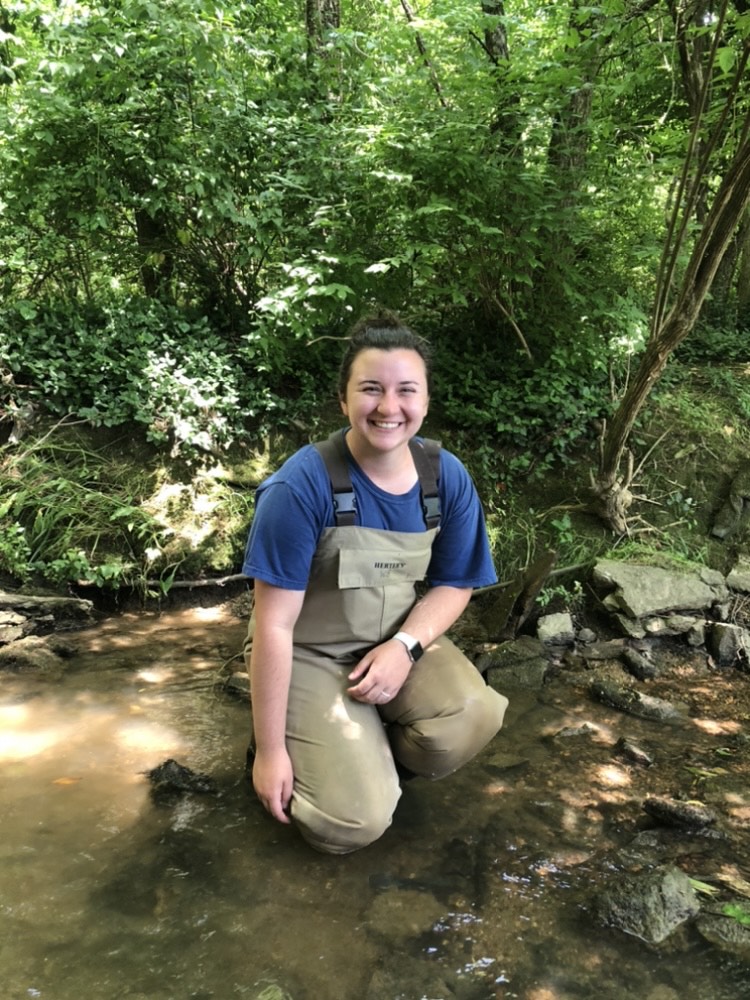
With several resources suggesting freshwater is only 3% of all of Earth’s water supply, this resource should be highly valued. Monitoring water quality is one way we can ensure we don’t take these resources for granted so that freshwater ecosystems can persist triumphantly well into the future. I was drawn to water quality monitoring after several years of living in a rural community where agriculture and urban development have impacted aquatic habitats. Nearby streams support populations such as the federally endangered Laurel Dace (Chrosomus saylori) and I hope my efforts in stream monitoring will aid in providing some recognition and relief for these struggling populations.
Why have you continued monitoring? What do you enjoy about monitoring?
I continue monitoring because I’ve seen how quickly things can change in our streams, especially with increasing development and recreational pressures. What I enjoy most is the hands-on connection to these waterways—it keeps me grounded in the very places I aim to protect. Plus, there’s something incredibly rewarding about being part of a solution, however small, and knowing that every sample, every observation matters.
How did you find out about the Izaak Walton League’s water monitoring programs?
I first heard about the Izaak Walton League of America Save Our Streams program through colleagues in the conservation field who praised its accessibility and community engagement strategies. Once I looked into it, I was impressed by how the program empowered everyday citizens and professionals alike to become advocates for their waters. It felt like the perfect complement to my professional training in aquatics.
Have you ever shared your monitoring data with others or used it to advocate for clean water protection?
Absolutely. I’ve shared my data with local watershed groups, local government, and even schools. It’s helped inform small-scale restoration efforts and has supported conversations around development impacts. Having concrete data gives weight to advocacy—garnering evidence that pursues the need for water quality monitoring well into the future.
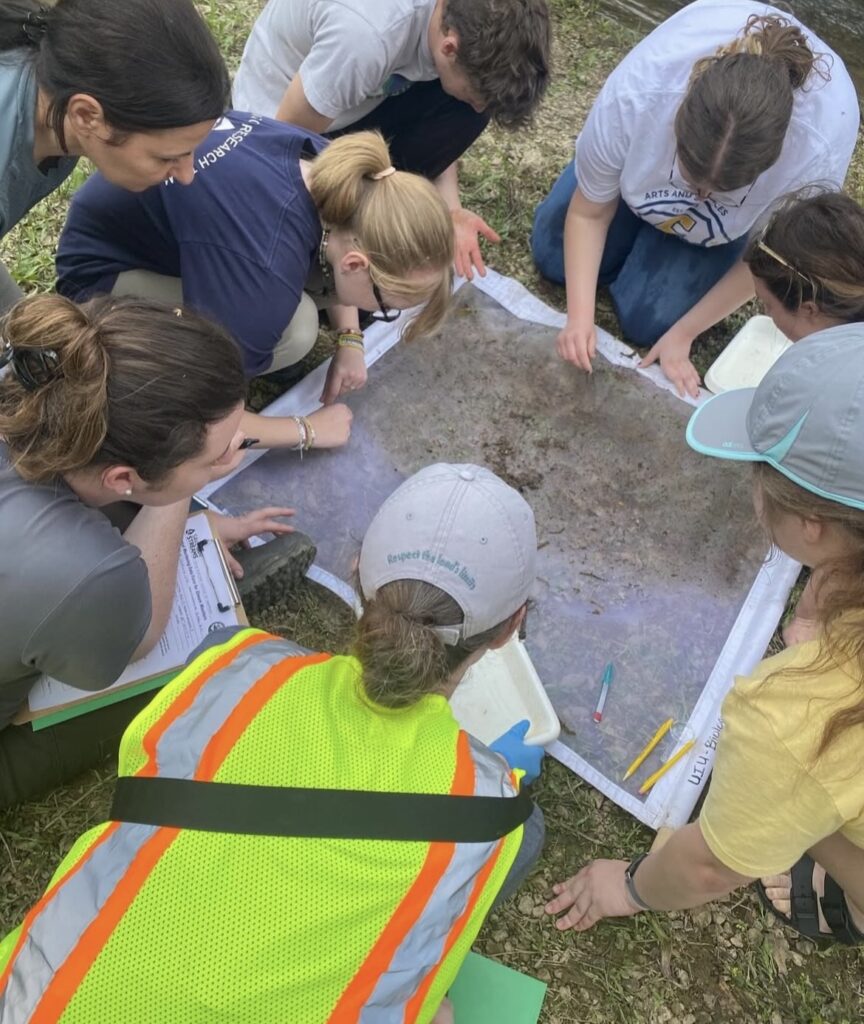
Are there any other ways you are working to protect the waterways that you monitor?
Yes. In addition to monitoring, I work closely with private conservation groups, non-profit organizations, and federal, state, and local government to promote sustainable land-use practices and educate others about ways to get involved with conservation. In addition, I volunteer consistently with many conservation-focused organizations to ensure my efforts in aquatic conservation reach their full potential.
Are there any ways you’ve seen water quality monitoring make a difference in your community?
Monitoring has made a real difference in my community. Most notably, I’ve seen it lead to increased community engagement in conservation-centered events, with education utilized as an effective tool for local engagement. When others see data from their stream or a stream close to home, I’ve seen this personalize the problem and, in return, personalize the solution to spark actionable change.
Is there anything else you’d like to add?
I’d just add that programs like the Izaak Walton League of America Save Our Streams monitoring program don’t just build better data—they build better communities. They empower people, bring community science to the front lines, and remind us that local action really can support more than just a single species. We all have a role to play, and I’m proud to be part of that effort.
Thank you, Ashley, for your dedication to clean water! We are so grateful to have volunteers such as Ashley using their unique talents to monitor and protect streams in their communities.
If you or someone you know would like to be featured in a future Meet a Monitor installment, reach out to the Save Our Streams team at sos@iwla.org.
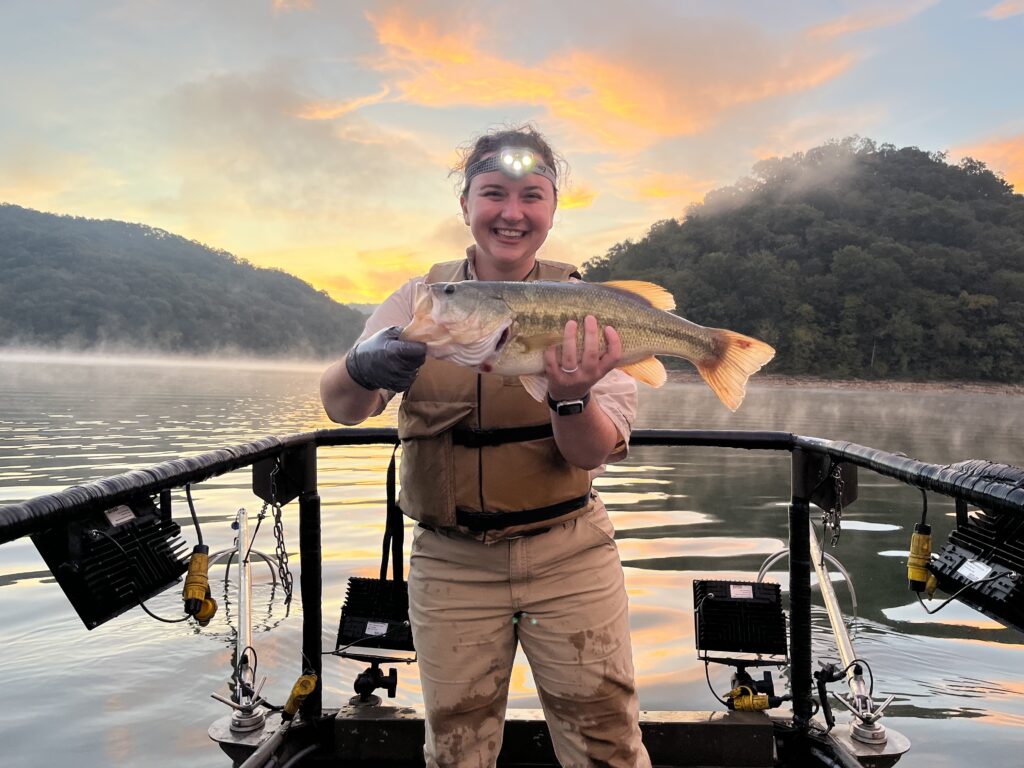
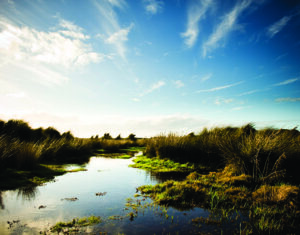
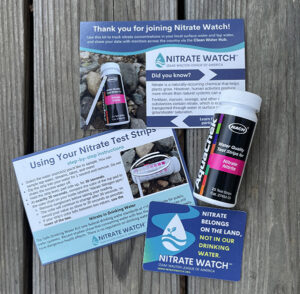 Your kit will include a bottle containing 25 nitrate test strips which you can use to test your water source(s) throughout the year. You’ll also receive postcards explaining how to use your nitrate test strips and how to share your Nitrate Watch results on the Clean Water Hub.
Your kit will include a bottle containing 25 nitrate test strips which you can use to test your water source(s) throughout the year. You’ll also receive postcards explaining how to use your nitrate test strips and how to share your Nitrate Watch results on the Clean Water Hub.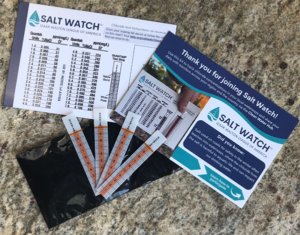 Your kit will include four test strips so you can test your waterway throughout the season. You’ll also receive a chart to help you interpret your results and a postcard with instructions for completing a Salt Watch test and reporting your findings.
Your kit will include four test strips so you can test your waterway throughout the season. You’ll also receive a chart to help you interpret your results and a postcard with instructions for completing a Salt Watch test and reporting your findings.